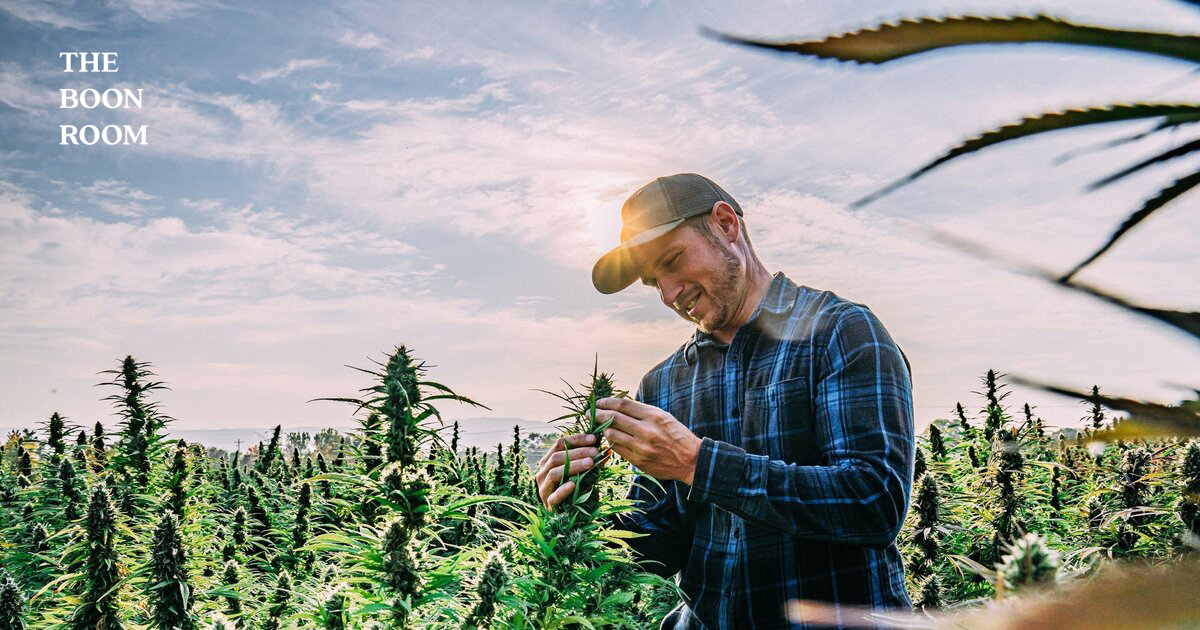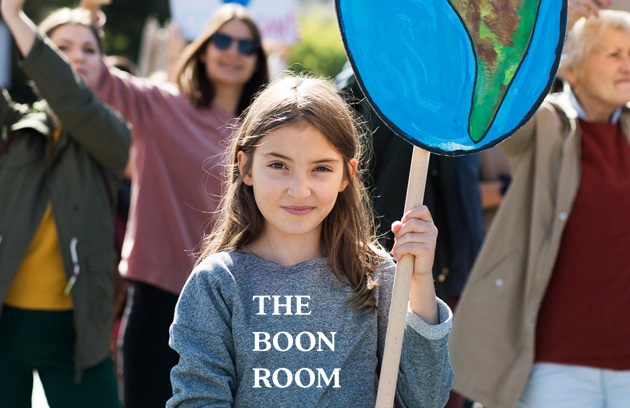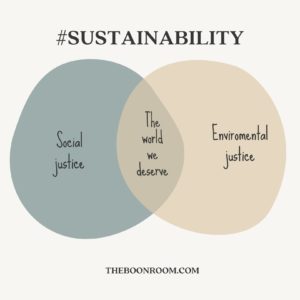 As the world’s population and all of its needs continue to grow, resources across the globe are being depleted at a drastic rate to keep up with the rising demand. Because of this, there is now a massive need to not only lessen the number of resources that are being used for production, but there are also whole movements dedicated to also helping people and companies be more sustainable going forward. Sustainability has become a big factor in many industries to try and combat the massive use of resources to keep up with demand in a way that has less of an impact on the environment.
As the world’s population and all of its needs continue to grow, resources across the globe are being depleted at a drastic rate to keep up with the rising demand. Because of this, there is now a massive need to not only lessen the number of resources that are being used for production, but there are also whole movements dedicated to also helping people and companies be more sustainable going forward. Sustainability has become a big factor in many industries to try and combat the massive use of resources to keep up with demand in a way that has less of an impact on the environment.
The world of agriculture has seen many changes over the years. Due to the fact that even resources such as basic fruits and vegetables are farmed now, agriculture everywhere pressures the native soils that are being worked too heavily, ultimately hurting the land sometimes beyond repair. A variety of things, such as soil erosion, result from the overuse of land and resources, making the soil nearly unusable for the future.
In order for agriculture to be able to continue at this massive level, sustainability needs to be made a priority everywhere. Some of the ways that we see this happening throughout the globe is with farmers embracing sustainable crops like Hemp. If you’re just now learning about the impact of farming on our environment and looking for ways to get directly involved in the change, growing hemp can be a good way to get into sustainable agriculture.
What Is Sustainable Agriculture?
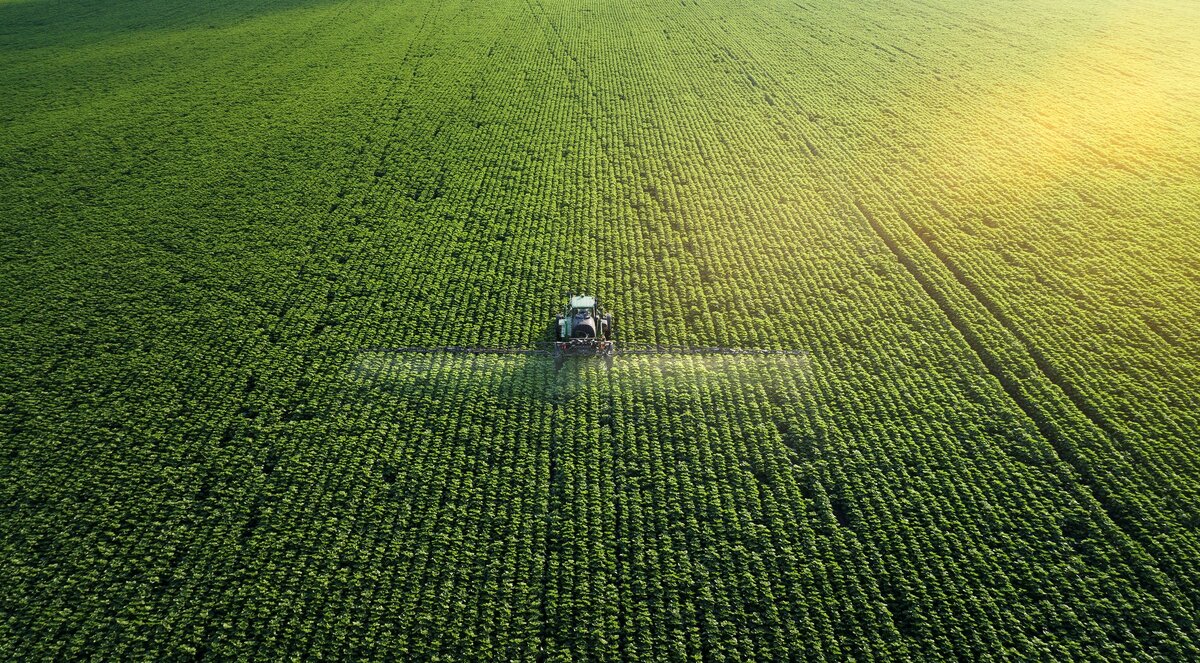
For something to be sustainable, whatever sort of process is being done needs to be able to continue on without harming the environment/negatively affecting surroundings and natural resources. In a basic sense, sustainability is about meeting our needs without hurting the earth in order to do so.
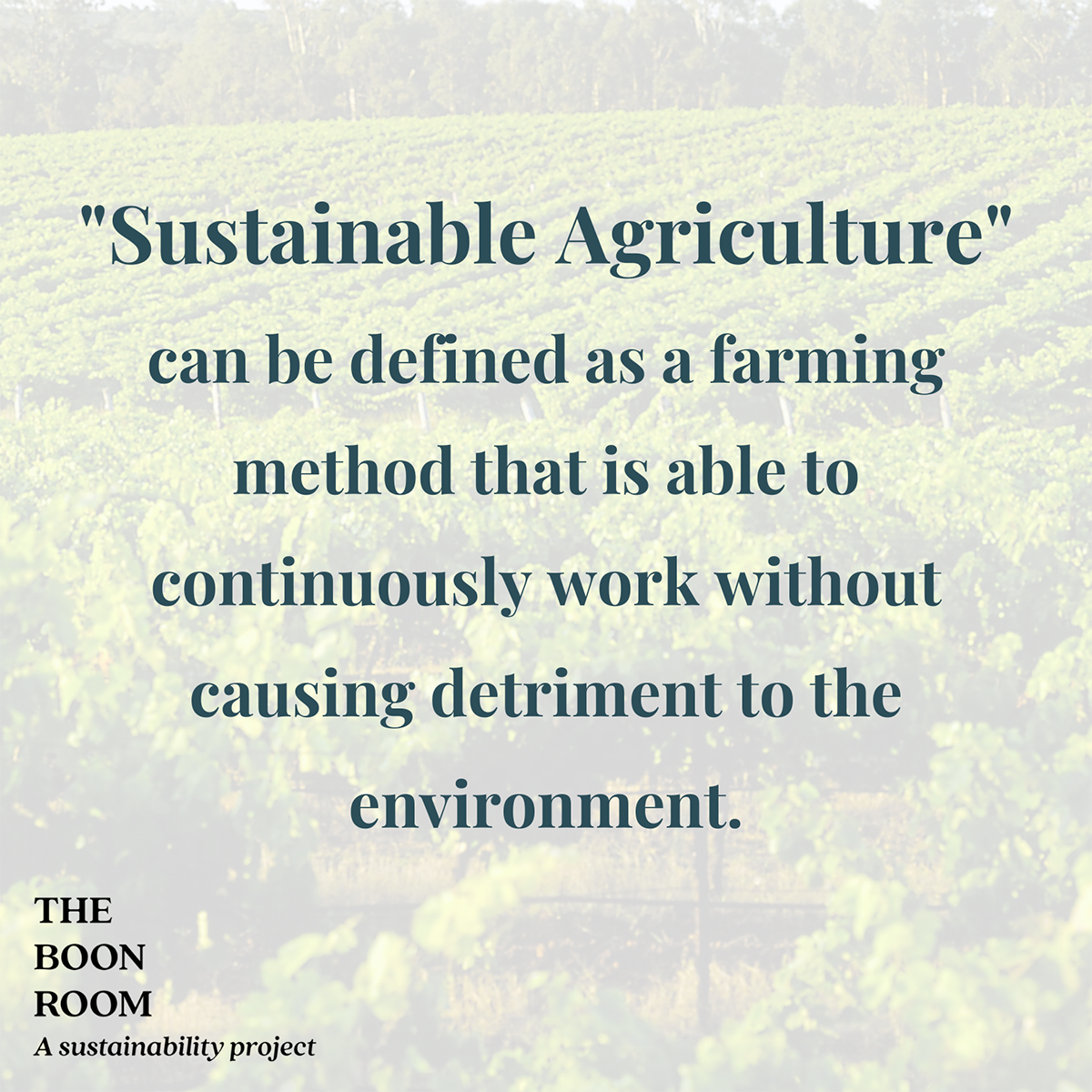 “Sustainable agriculture” can be defined as a farming method that is able to continuously work without causing detriment to the environment. Sustainable agriculture does not compromise the environment, climate, or people around it and ensures that needs can still be met now and in the future. This is the newest wave of agriculture across the country as we attempt to combat climate change, growing populations, and the depletion of resources. It prioritizes aspects of farming that other big industries have failed to uphold in the past, such as conservation, preservation, and animal welfare.
“Sustainable agriculture” can be defined as a farming method that is able to continuously work without causing detriment to the environment. Sustainable agriculture does not compromise the environment, climate, or people around it and ensures that needs can still be met now and in the future. This is the newest wave of agriculture across the country as we attempt to combat climate change, growing populations, and the depletion of resources. It prioritizes aspects of farming that other big industries have failed to uphold in the past, such as conservation, preservation, and animal welfare.
Why Is Sustainable Agriculture Important?
Modern agriculture has had a massive footprint on the world. Sustainable agriculture is immensely important to the future of our food. Industrial agriculture, the method of agriculture that has been around for the past century here in the U.S., involves massive resource and pesticide use to continually grow the same kinds of crops. This repetitive harvesting and regrowing of the same crops with chemicals added not only hurts the environment dramatically, but the climate, too.
Sustainable agriculture prioritizes multiple different areas:
1. Conservation/Preservation
Resources cannot just simply be taken out of the environment without consequences to all of their surroundings. Conservation focuses on ensuring that resources are used responsibly and regrown so that the surrounding environment is not negatively affected. Preservation is often used interchangeably with conservation, but preservation tends to lean towards protecting larger aspects of our environment from dangerous human processes.
2. Maintaining Biodiversity
One large problem with industrial agriculture is its consistent growth of the same crops. When the same plants are grown over and over, especially ones that may not even be native to the area, the soil is stripped of its nutrients completely. This process is known as soil erosion and often results in farmers not being able to grow multiple different kinds of crops in the same places anymore. Sustainable agriculture makes sure to focus on maintaining the biodiversity of the natural environment while also selecting crops to grow that won’t strip the land.
3. Animal Welfare
Another problem with large industries and corporations across the country is their blatant disregard for the animals that are used in many of their production processes. Sustainable agriculture prioritizes the wellbeing of animals instead, allowing them to live as naturally as possible and respecting them as they do so.
4. Economically Viable
In the agricultural industry, there are often disproportional wages for different workers. Farmers sometimes have to depend on government subsidies while the corporations that they work for make millions. Sustainable agriculture ensures that everyone is paid a fair wage for their labor.
5. Workers Treated Fairly
One of the last aspects of sustainable agriculture is the focus on civil, fair treatment of every worker. Agriculture is much more than simply growing food. There are many different moving parts that go into bringing the nation food and sustainable agriculture aims to make sure that each person involved in that process is supported.
Growing Hemp Crops for Better Sustainability

By definition, a sustainable crop is a plant that can be grown without harm to the native environment and will often help enhance the soil and sometimes even the surrounding environment. Because of this large push towards sustainability and being eco-friendly in the agricultural industry, many farmers are looking to grow more sustainable crops knowing the benefits that come with them. If you’re looking to grow more of these helpful plants, you may be wondering “is Hemp a sustainable crop?” The answer is yes!
Eco-Friendly Benefits to Growing Hemp
Hemp is considered a sustainable crop for multiple reasons:
1. Helps Regenerate Soil
Hemp is an amazing plant when it comes to helping the soil. Not only does the hemp plant have long roots that can penetrate through deep soil, bringing up nutrients that most other crops can’t reach, but it also returns over half of its nutrients directly back into the soil. On top of that, the deep roots of the hemp plant open up the soil for future crops to be grown in. The hemp plant even helps with soil contamination.
2. Plastic, Paper, and Oil Substitute
Another reason hemp is considered a sustainable crop is because it can be used as a sustainable substitute for a variety of basic things that negatively affect the environment. Hemp plastic is a great substitute for regular plastic as it is non-toxic and biodegradable. Hemp paper decreases the amount of trees needed to make basic paper immensely. Hemp oil can even be used as a substitute for crude oil.
3. Can Be Grown Almost Anywhere
Hemp is a versatile crop and can grow in almost any climate. Because hemp is such a dense plant, it takes in the sunlight it needs and doesn’t allow any to pass through, which is a common cause of weeds. Differing climates, of course, will result in slight differences in the plants, but if you have even a bit of warmth in your area, you most likely will be able to grow or find hemp near you.
4. No Pesticides Needed
Hemp is not only a strong, but a perseverant plant. On top of that, pesticides aren’t needed to help hemp grow because of its deep roots. These roots basically choke out surrounding weeds trying to combat for nutrients, while the dense plant blocks out sunlight that would help weeds grow. Hemp is a great rotation crop to help restore your soil after excess nutrient usage and also help the surrounding environment.
5. Little Water Needed
Another reason hemp is considered a sustainable crop is because of the amount of water it uses. One huge problem in the current agricultural industry is the heavy water usage for production. The hemp plant uses much less water to both grow and be harvested than a variety of common crops, including cotton. This allows hemp to be grown in warmer climates as well as areas where farmers are trying to reduce water usage.
6. Economically Viable for Everyone Involved
Hemp is a cash crop. Farmers in both the United States and Canada have seen a dramatic increase of profit per plant than most other crops they may have been used to growing. With the benefits of the hemp plant becoming more and more popular, there is now a growing need for sustainable hemp farming across the country. Hemp produces a multitude of quality products that can help benefit everyone involved.
What Are Five Sustainable Agricultural Practices?

There are many things you can do to start practicing sustainable agriculture at your farm today.
Here are just a few sustainable agricultural practices:
1. Rotating Crops
One popular practice of sustainable farming is rotating crops. Crop rotation plays a big role in enriching the soil of an area so one crop does not drain the land of specific resources and nutrients. This also helps embrace biodiversity by switching plants.
2. Embrace Biodiversity
A good sustainable farming practice to always keep in mind n biodiversity. An environment cannot strictly grow one kind of plant without some sort of consequences to the pieces within it. By embracing biodiversity and planting different crops, it ensures that the soil will have new nutrients to work with and not be stripped of others.
3. Planting Cover Crops
A cover crop is a plant that is planted off-season to cover bare soil. Common cover crops include clovers, and they help to prevent future problems such as soil erosion and weeds. Cover crops also help to keep nutrients circulating through the soil in the off-season.
4. Permaculture
Permaculture is the process of copying how plants would naturally be growing in their native environments. Practicing permaculture not only reduces waste of resources by not having plants that are trying to grow in the wrong surroundings, but it increases efficiency overall.
5. Renewable Energy
Currently, energy usage within modern industrial agriculture is immensely high. Finding a way to reduce energy consumption while still trying to meet protection demands is one of the top priorities of many farmers across the country. By using renewable energy resources such as solar energy or hydropower on your farm, costs of energy and resource consumption are cut heavily.
Moving Forward with Sustainable Agriculture

The world and its population continue to grow, and so do its needs. Ultimately, the future of our society depends heavily on the agricultural industry and its ability to become more sustainable. The use of sustainable farming practices and sustainable crops, such as hemp, are becoming immensely important to our wellbeing both now and in the future.
The Boon Room prioritizes sustainability in all aspects of our lives. We not only focus on the sustainable crop of hemp but many other sustainable and eco-friendly ways to fight for a better future for us all.

The Boon Room is more than a website, brand or service. It’s an idea. It’s a project. It’s a mission. It’s a coming together of companies, investors, cultivators, manufacturers, distributors, retailers and inspired entrepreneurs who believe businesses need to look for ways to invest in sustainablity.
